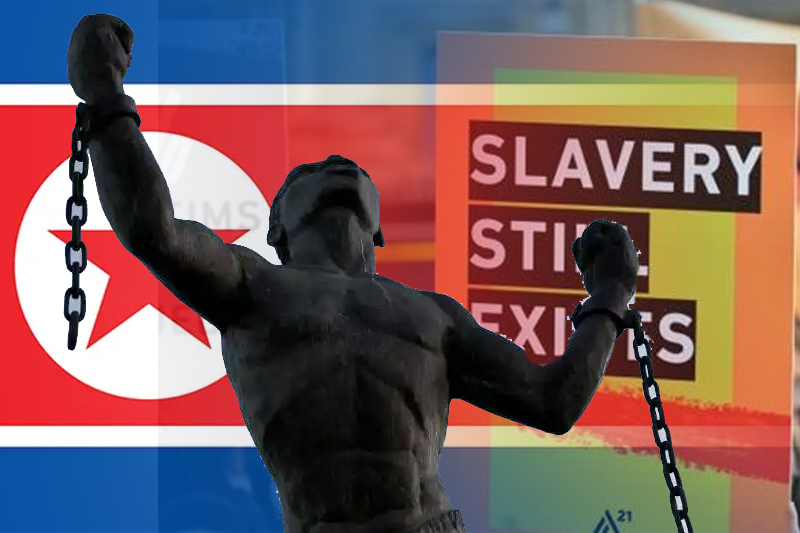

north korea and eritrea have highest rates of modern slavery
According to the rights group Walk Free, up to 50 million people worldwide were reportedly subject to forced labor or forced marriage in 2021.
According to the 2023 Global Slavery Index, which notes a “worsening” situation globally since its last survey five years earlier, North Korea, Eritrea, and Mauritania have the highest prevalence of modern slavery in the world.
According to the report released on Wednesday, there will be an additional 10 million people “living in situations of modern slavery” by 2021, up from the previous estimate of 40 million.
The number includes about 22 million people who are forced into marriage and about 28 million who are forced to work.
According to the investigation, among other things, the situation is getting worse “against a backdrop of increasing and more complex armed conflicts, widespread environmental degradation, and effects from the coronavirus pandemic.”
According to a report put together by the human rights organization Walk Free, modern slavery includes “forced labor, forced or servile marriage, debt bondage, forced commercial sexual exploitation, human trafficking, slavery-like practices, and the sale and exploitation of children.”
The fundamental tenet of slavery is “the systematic removal of a person’s freedom”—from the freedom to accept or reject labor to the freedom to choose whether, when, and with whom to marry.
As a result of this metric, North Korea, which is secretive and authoritarian, has the highest prevalence of modern slavery (104.6 per 1,000 people).
Eritrea (90.3) and Mauritania (32), the last nation in the world to outlaw hereditary slavery in 1981, are the next two.
“Limited protections for civil liberties and human rights” is one of the characteristics shared by the ten nations with the highest prevalence of modern slavery.
Many of the nations are either located in “volatile” areas rife with conflict or unstable on the political front, or they are home to sizable populations of “vulnerable people” like migrants or refugees.
Saudi Arabia, the United Arab Emirates, and Kuwait, where the “kafala” sponsorship system restricts migrant workers’ labor rights, were among the top 10 countries worldwide.
Other nations in the top 10 include Tajikistan, Russia, Afghanistan, and Turkey, “which hosts millions of refugees from Syria.”
The report noted that while forced labor is more prevalent in low-income nations, it is “deeply” connected to demand from higher-income countries and that two-thirds of all forced labor cases are connected to international supply chains.
G20 countries, which include the European Union and the top 19 economies worldwide, are importing $468 billion worth of products made using forced labor, up from $354 billion in the previous report.
As a result of the high demand for renewable energy products, electronics continue to be the product with the highest value that is most at risk, followed by clothing, palm oil, and solar panels.
“Every aspect of our society is affected by modern slavery. The group’s founding director Grace Forrest said, “It is woven through our clothes, lights up our electronics, and seasons our food.
Modern slavery is fundamentally an expression of extreme inequality. Who has it and who doesn’t in any given society is reflected in the mirror held to power, she continued.
Blockades on the borders of the country are to be put in place on April 28 if they do not…
After putting a 12% import tax on steel items for 200 days the Indian steel sector begins its path to…
To resolve the deepening crisis of Afghanistan, which is the displacement of local people as the migrants, a collaborative meeting…
The HSR project to connect Kuala Lumpur and Singapore creates better transportation for all regional areas in Malaysia. Government records…
Scottish Water staff started their 48-hour work strike at midnight due to their escalating pay negotiation problems with the organization.…
The Trump administration has selected Kansas City as its main destination to test federal workforce reduction measures. Through the leadership…
This website uses cookies.
Read More